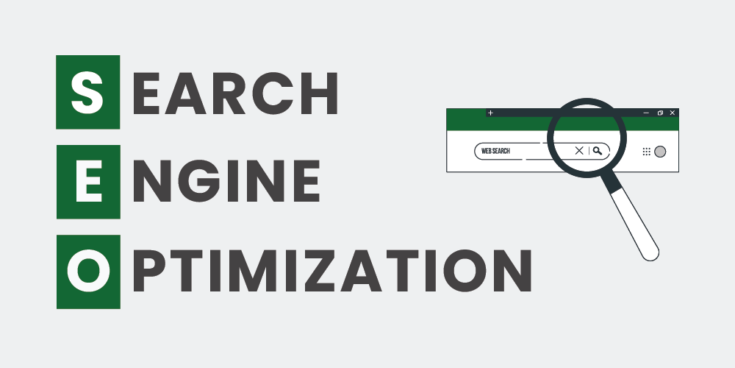You’ve had an epiphany. Your ‘big idea’ has been the result of many years of study, or perhaps it came to you like a flash of lightning in the night? Either way, world domination awaits. This is not just another game of Risk; this is the real deal. By comparison setting up a website should be easy, right? Wrong!
Unless you studied web design or computer science, you can’t expect to be a website designer, developer and SEO guru all rolled into one. You may be able to build a basic website from your bedroom, but is this the best way to market your skills online and provide a solid platform for your business?
It’s worth taking time to research, learn and digest all of the info you can on building a website. We’ve outlined ten tips to help you get on the right track…
1. Your aims
You need to think carefully about what your website is saying about your business and whether it’s fulfilling its potential as a useful tool to help your venture grow.
Before you begin a web project, take some time to think about the purpose behind it. Do you just want to build awareness of your business in the local area? Will it be used solely as a promotional tool? Are you going to use it to distinguish yourself from the competition? Or do you want to set up a website that sells goods online?
Make a list. Whatever your business will deliver, it’s important to be clear about what you want your website to achieve from the start.
2. Your audience

It’s important to understand what people will be looking for when they visit your website. What do your customers want? Think about whom you want your site to appeal to. Are you hoping to attract various kinds of visitors from different market segments?
It may sound obvious, but if your business is all about selling products, your site will need a shopping cart and a way for customers to pay you. If you’re providing a service, clients will need information about you and a way to contact you or book online.
3. Website creation
Once you’re clear on what you want your website to achieve and who it will be aimed at, you can start thinking about creating it. You may have clear ideas for the homepage, logo and images, but, at this stage, many new businesses consult with a web design and development company.
A good company will be able to advise you on design, content and development, as well as advising you on the best domain name to choose. They will also help you to structure your website to best fit your needs as a business. Using an experienced agency will usually result in a more user friendly website and yield better results for your business.
4. Content

Content is one of the most important aspects of any website. The key to this is to convey the information you need in a clear and comprehensive way. You may have the insight to plan your content and write most of it. However, if you’re not good with words, consider employing a copywriter. The web company you work with may even employ copywriters, or they may be able to recommend freelance professionals.
Content will obviously include text and images; however, there are other ways to illustrate your point, such as rich media content like videos. Remember: content is how your site will communicate with visitors and it will also affect your position on search engines.
Localizing websites involves adapting the content, design, and functionality of a website to cater to the linguistic, cultural, and regional preferences of a specific target audience. This process goes beyond simple translation, encompassing elements such as date formats, currencies, images, and even idiomatic expressions to create a seamless and culturally relevant user experience. Visit Centus for successful website localization to enhance user engagement, build trust, and ultimately expand the reach of a business or organization in diverse global markets.
5. Look & feel
Your website doesn’t just have to look attractive. It must also put across the right messages about your business and what you’re offering. What’s more, it must strike the right psychological notes with each segment of your audience. For example, logo and colour are important.
If you’re launching an ice cream parlour, you may want to use candy colours and froth, but this probably wouldn’t be the right colour scheme for a website on legal advice. Whatever you choose, maintain consistency throughout the site.
6. Website usability
The way you organise the information on your website will make a big difference to the visitor experience. Think about the different segments of your audience and why they’ll be visiting your website.
This should help you plan the layout of your website to make the user journey as easy and enjoyable as possible. Try asking friends or potential customers to use the website and get their feedback.
7. Website accessibility
Make sure the web company you use builds your site to W3C accessibility standards. This ensures that:
- People can access your site from different browsers;
- People with visual and physical impairments can access your content.
Make sure that you get the right advice if you don’t understand this fully.
8. E-commerce
Do you want to use your website to sell directly to the public? If so, you’ll need to build in e-commerce functionality. We touched on this idea earlier, but it’s important to emphasise that this involves much more complex functionality than a website that merely gives advice. Your web designer should advise you on program options.
9. Search engine optimisation (SEO)

It’s important to include the right keywords at strategic points in your section titles and content to achieve good positions in search engine results on websites such as Google. Incoming links from other websites will also boost your rankings.
There are a number of other techniques to consider—again it’s worth consulting a professional web developer or a separate SEO provider who can optimise your site to achieve maximum search engine rankings.
10. Keeping up to date
Updating your content regularly will help maintain your position on search engines and also encourage people to visit again. Adding a blog is a great way to keep your site active, as well as linking to Twitter, Facebook, Pinterest and other social networking sites. Take some good advice and jump in; the best way of learning is to give it a go.
Bottom line for your business…
Having a clear understanding of the processes involved in creating a successful website will maximise your chances of achieving your aims.


